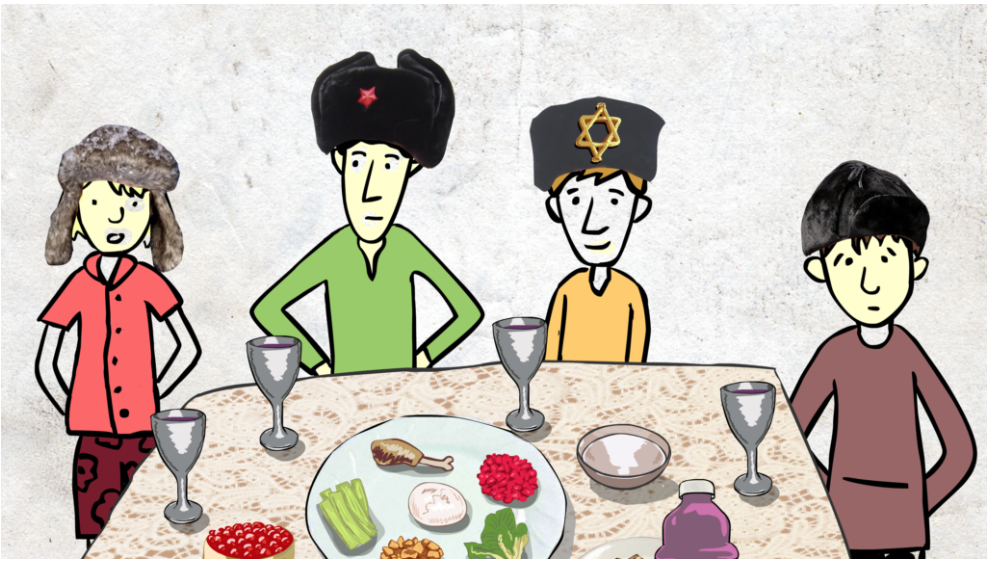CommentsONE MAN’S OPINION-As Pesach nears, we Jews have to deal with four sons, three questions, two prongs, and one goal.
The Four Sons
Since the wise son asks about the law, in this year where immigration may be the most pressing issue, we should ask, what are the laws governing immigration? As the King of Hearts told Alice in Through the Looking Glass, “start at the beginning.”
Next, the wicked son separates himself from society by asking, “what does all this mean to you?” The answer should be simple. “We were strangers in the land of Egypt.” That means we all were and are in this together. In addition, we have empathy for others because we recall our suffering.
Much like Aunt Clara in Bewitched, the simple son is bewildered by the Seder and asks, “What’s all this?” The lesson for others is to have patience and give an answer appropriate to the son’s ability.
The last son lacks the awareness to ask a question. Thus, the task is to awaken him to the need to think about life.
In real life, we usually just start arguing, creating a cacophony of incoherence. Nonetheless, it would be nice if we could ask wise questions before sledge hammering others with our opinions.
Hillel’s Three Questions May Help
Except for the Hillel Sandwich, Hillel does not appear in my Haggadah. Yet, asking his three questions could bring a semblance of civility.
Q#1: If I am not for myself, who will be for me?
Every individual has both the right and the duty to look after him or herself. Being unduly self-effacing is false modesty and we should tend to our own needs. In other words, it is not evil to ask how different immigration policies will impact us.
Q#2: If I am for myself alone, what am I?
As the answer to the wicked son implied, as individuals and as a people we may not think only of our own wants and needs. We all live in and benefit from society. In a tradition where saving a single life is tantamount to saving the entire world, our approach to immigration must consider the plight of others.
Q#3: If not now, when?
The answer is not always “now.” As Jack Benny showed, timing is everything. Rushing off to be an orderly in some distant land without first finishing medical school is bad timing. But, how do we learn the proper time for our actions?
The Two Prongs
Which is more important – study or action?
Action is more important because study alone accomplishes nothing. But study is also important because foolish action is harmful.
Again, we come back to the wise son who asks about the law that underlies human action. Law is not an abstract, but instead it evolves from real life fact situations. Here is where most of us fail miserably. Our immigration arguments are mostly a barrage of ill-informed, hyper emotional memes.
As Americans we tend to know very little about other countries, and we are quite poor at recognizing how our own actions have caused the conditions that have resulted in people fleeing to the U.S. The drug policies, which Trump often conflates with immigration policy, start with American demand.
Demand generates supply, not vice versa. Similarly, our policies that have disrupted Central American countries impel people to demand a better life – something they cannot achieve in their own countries due to what we have done to them historically. In brief, hordes of immigrants are America’s roosters coming home to roost.
If we are honest with ourselves, we are all fact-deficient when it comes to immigration. The answer to “when” to undertake study is “a long time ago,” but we must take action now. As Olie would say to Stan, "this is another kettle of fish that you have gotten us into."
One Goal
The goal is Tikun Olam – we are all participants in fashioning a better world. Who’s to blame for this task being so hard? I blame GOD! Nowhere in Genesis did GOD undertake study; it was just action followed by self-congratulation – “and he saw that it was good.” Don’t tell me meleck ha-olam was all knowing and hence there was no need to look before he or she or it leaped. Had Genesis inserted thought before action, then maybe our actions would be less rash and more informed.
Let’s admit that each of us incorporates some portion of the four sons, we fail to ask Hillel’s Three Questions, and we often act without study. Life is a process, and we didn’t rush through the parted waters of the Red Sea and immediately set up shop in Eretz Israel. Perhaps, we should slow down, take time to learn and practice empathy.
(Richard Lee Abrams is a Los Angeles attorney and a CityWatch contributor. He can be reached at: [email protected]. Abrams’ views are his own and do not necessarily reflect the views of CityWatch.) Edited for CityWatch by Linda Abrams.















